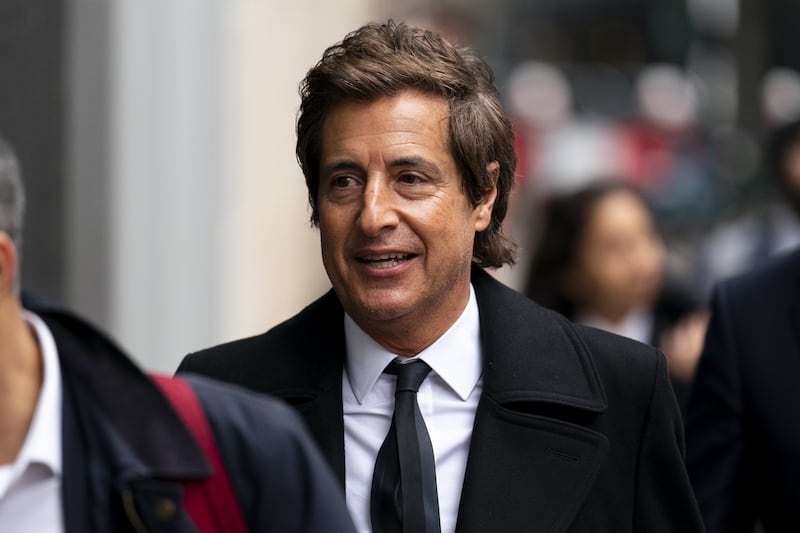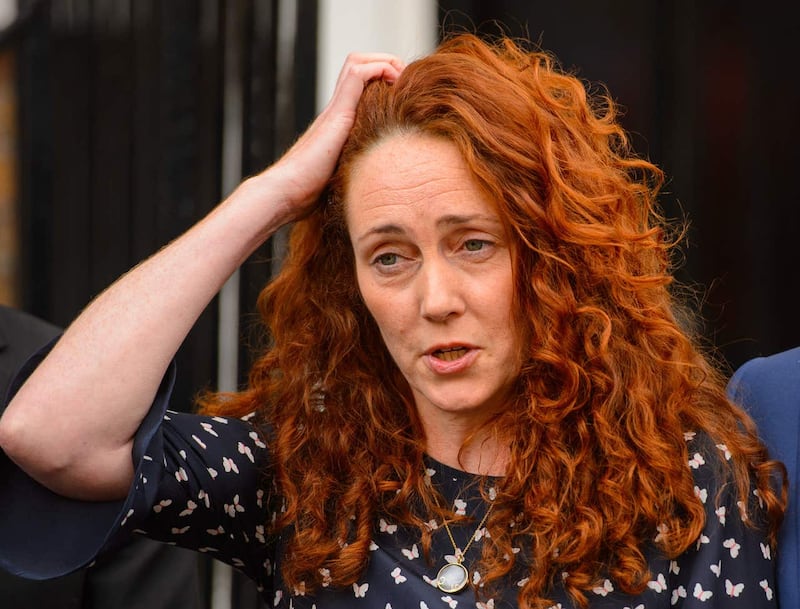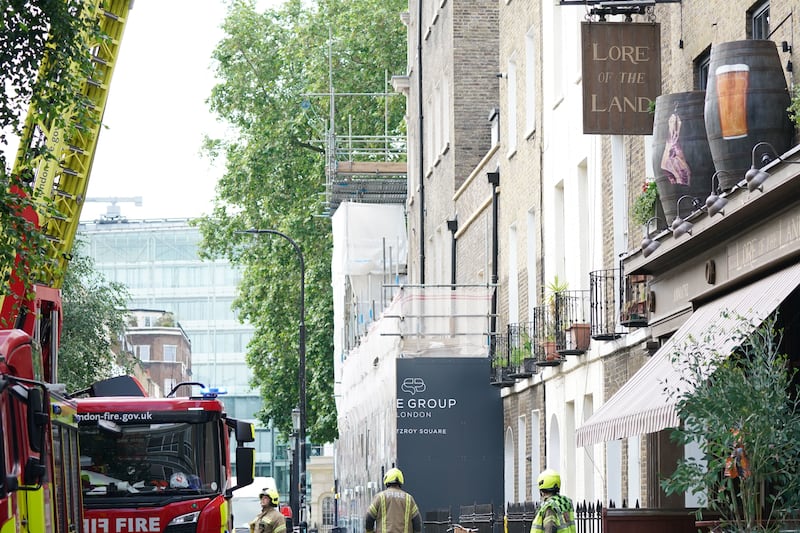The publisher of the defunct News of the World “gave false evidence” to police about how the hard drive of its then-chief executive went missing as it faced allegations of phone hacking, the High Court has been told.
News Group Newspapers (NGN) is being sued by the Duke of Sussex and several other individuals over allegations of unlawful information-gathering, including the use of private investigators.
Lawyers for the individuals have claimed that a computer hard drive belonging to Rebekah Brooks, NGN’s former chief executive, went missing in May 2011 and that NGN gave false evidence to the police to “explain away” its disappearance.
The allegations came in written submissions for a High Court hearing on Wednesday, where barristers for the individuals asked to update parts of their case, including aspects of Harry’s individual legal challenge, following the release of further information.
NGN is resisting the application, with its lawyers saying the changes are “wholly unnecessary” and “positively undesirable”.

In his written arguments, David Sherborne, representing Harry and the other people bringing claims, said it had already been alleged that the hard drive of Ms Brooks’ computer was “sequestered and/or destroyed deliberately in order to conceal her and others’ knowledge of wrongdoing at NGN”.
The court was told the individuals want to include further documents in their claim, including a 2021 witness statement from an IT engineer at NGN who said the hard drive was intact in an audit in January 2011 but was found to be missing during a “routine inspection” in May that year.
Mr Sherborne, who has also represented the duke in his other High Court legal actions, said the changes to the pleaded case show a “bigger picture” of NGN’s “concealment of unlawful information-gathering, the destruction of evidence and the cover-up of the concealment and destruction”.
The hearing at the High Court in London was told there are 45 separate claims against NGN, including from Harry, film-maker Guy Ritchie, actor Hugh Grant, and Baroness Lawrence of Clarendon, mother of murdered black teenager Stephen Lawrence.
A trial of the duke’s and others’ claims is expected to be held in January next year.
Mr Justice Fancourt previously ruled that Harry could not bring a claim in relation to phone hacking against NGN and that he could not rely on an alleged “secret agreement” between the royal family and senior executives working for media mogul Rupert Murdoch.
Several high-profile individuals have previously settled claims against the publisher, including comic Catherine Tate, radio presenter Chris Moyles, Spice Girl Melanie Chisholm, former Boyzone member Shane Lynch, and actor Mathew Horne.

A spokesman for News UK, NGN’s parent company, previously said it had made an “unreserved apology” in 2011 to victims of phone hacking at the News of the World.
They said it was “drawing a line” under some cases and paying damages to those with “proper claims”, but that it did not accept liability or make any admissions to disputed allegations in ongoing claims against The Sun.
In written arguments, Anthony Hudson KC, representing NGN, said changing the claims would “substantially prejudice” the company as “they introduce over 200 new journalists, executives and private investigators”.
“A number of very wide-ranging and serious allegations concerning senior executives and political motivations are made, but made entirely in the abstract,” he said.
“They appear to be designed to precipitate a politically-fuelled quasi-public inquiry, and not to assist the court with its actual function of determining – in individual claims – whether there has been misuse of private information and, if so, how much compensation should be paid.”
Mr Hudson also said the changes “appear to be designed to grab headlines, and not to progress the individual claims”, with NGN expected to argue at a hearing later this year that an initial trial should be held over whether the claims have been brought too late.
The hearing is due to conclude on Friday, with Mr Justice Fancourt expected to give judgment at a later date.







